Snorkeling is supposed to be a fun and relaxing activity that lets you take a look at the world underneath the surface without all the heavy equipment required for scuba diving.
For most people, snorkeling is pretty easy.
However, if you’ve ever suffered from an attack of vertigo, you’ll know that while it’s happening, floating in the water is the last place that you’ll want to be.
We’re going to look at how snorkeling and vertigo can be related and see if there are indeed ways that snorkeling could cause it to occur.
In general, we will see that most true vertigo problems are related to existing medical conditions.
There are some ways that actions related to snorkeling can trigger vertigo-like symptoms, but luckily, these are generally only temporary.
- How Can Snorkeling Cause Vertigo?
- Why Do I Feel Dizzy After Snorkeling?
- Is Vertigo the Same as Seasickness?
- Can Anyone Experience Vertigo While Snorkeling?
- Is It Safe To Swim With Vertigo?
- 8 Tips To Avoid Vertigo When Snorkeling
- What To Do if You Get Hit by Vertigo While Snorkeling
- I Never Get Vertigo When Scuba Diving, Only When Snorkeling – Why?
- Conclusion
- You Might Also Like…
How Can Snorkeling Cause Vertigo?
In order to understand if and how snorkeling can cause vertigo, we must first understand what vertigo really is and what can cause it.
Vertigo is a particular kind of balance disorder where the sufferer feels as if they are spinning while not actually moving.
It can also be accompanied by light-headedness, loss of balance, confusion, nausea, vomiting, and tinnitus.
True vertigo is a symptom of a significant balance issue, and there are two different types.
Subjective vertigo is where you feel as if you are moving.
Objective vertigo is where you feel that your surroundings are moving in your vision.
An inner ear problem generally causes vertigo, and if you experience an attack, you should seek medical attention so a doctor can check you for anything serious.
Your inner ear is a vital part of your balance system. The inner ear measures your head’s direction and speed as it is moving and feeds this to the brain.
The brain combines this with visual information from the eyes and feedback from your muscles and joints to work out how you are moving and, significantly, what direction down is.
Any differences between the information that the brain receives causes confusion in the balance system, resulting in vertigo.
The inner ear uses gravity and pressure changes to get information about your movement.
Anything that affects its ability to measure these will mean that incorrect information is given to the brain.
Common medical causes of vertigo include:
- Benign Paroxysmal Positional Vertigo (BPPV): Occurs when the tiny calcium crystals called canaliths which are naturally found in your inner ear, are dislodged from their usual location.
The motion of the crystals can cause the inner ear to tell your brain that you’re moving when you are not.
- Meniere’s Disease: A buildup of fluid in the inner ear causes pressure changes which affect the brain’s ability to determine movement correctly.
- Vestibular Neuritis or Labyrinthitis: Caused by an infection in the inner ear that creates pressure changes that interferes with the brain’s sense of balance.
Vertigo can also be caused by head or neck injury, brain problems including stroke or tumor, and certain medications.
Suffers of these conditions can have an attack of vertigo triggered by a change in their head position.
The occurrence of vertigo can occur when snorkeling for several reasons, and it may or may not be related to an underlying medical problem.
Remember that it is always best to get checked by a doctor if you suffer from any dizziness.
The action of swimming and snorkeling could be enough to cause an existing vertigo sufferer to get an attack.
The lying flat, face down position along with head movement and the rocking of the water can cause enough inner-ear confusion in someone who already has a problem.
In particular, the motion in the water or rapid head movements when snorkeling can cause sufficient crystal movement in sufferers of BPPV to stimulate significant vertigo.
Typically, the sickness that snorkelers feel is not specifically vertigo but rather a general nausea that can be caused by snorkeling in many ways.
Outside of specific medical conditions, snorkeling related problems that can cause vertigo-like symptoms include the following:
1. Sudden Exposure of Your Ears to Cold Water
Exposing your ears suddenly to cold water can cause a momentary confusion in the brain’s balance.
Usually, this creates a minor problem that is not noticed so long as your ears are exposed equally.
If your ears receive the cold water at different levels, for example, if one ear is clogged with wax, or if you are wearing a hood that leaks unevenly, then the difference in temperature and pressure in the ears can cause vertigo.
Usually, your body heats the water entering the ears, and the problem goes away quite quickly.
If this does happen, you should have your ears checked for blockages. If you wear a hood for snorkeling, it’s essential to get one that fits correctly.
It is often helpful to deliberately open the hood to flood your ears in a controlled way so you don’t suffer from water getting to your ears unevenly.
2. Uneven Exposure to Water
Snorkeling with one ear submerged more than the other or if you have one ear facing into the direction of waves can cause vertigo-like symptoms.
When your ears are exposed to uneven pressures, it can confuse the balance system, making something similar to vertigo.
3. Equalization Problems
The most likely cause of vertigo when snorkeling is caused by poor equalization of the ear air spaces when duck diving.
If you cannot equalize successfully, there will be a pressure difference felt in your ears. While descending, this may only cause pain.
However, on the ascent, when air is expanding, this can generate sufficient pressure in the inner ear that you can be hit by vertigo.
It’s crucial to make sure that you can equalize, so you should begin with shallow dives and slowly extend your range.
Never try to duck dive if you have a cold or congestion, as this will stop you from equalizing correctly.
4. Lack of Visual Input Over Deep Water
A lack of a clear visual reference can cause vertigo by significantly confusing the mental balance system.
Dizziness is common when looking down into very deep waters.
You can overcome temporary feelings of discomfort by looking along the surface at a reference.
Ultimately, a repeat sufferer should stick to shallower water to see the bottom or the reef clearly.
Why Do I Feel Dizzy After Snorkeling?
Effects of Motion Sickness
Once your body gets back onto something solid, there may be a period of readjustment needed for your brain, having got used to the confusion it was receiving in the water.
Postural Hypotension
When you’ve been flat snorkeling for an extended period, changing to a vertical position can cause a temporary drop in blood pressure that creates a feeling of dizziness.
Mild Hypoxia
Remember that you need to breathe slowly and deeply when snorkeling.
Hypoxia, where you’re not receiving enough oxygen, can happen if you have been overexerting or weren’t breathing deeply enough through the snorkel.
Dizziness or a feeling of weakness is the result.
Ear Infection
An ear infection will become more inflamed when submerged snorkeling which can cause an imbalance.
On the surface, as you move into a vertical stance, this can be more pronounced and cause dizziness.
Dehydration
It’s very easy to get dehydrated while snorkeling and back on the boat or shore, and this can cause dizziness.
Is Vertigo the Same as Seasickness?
Vertigo is a particular type of dizziness describing the spinning sensation that sufferers feel.
Nausea similar to seasickness would be a typical result of suffering from vertigo.
Can Anyone Experience Vertigo While Snorkeling?
As we have seen, there is often an underlying medical reason that leads someone to suffer from vertigo.
The horizontal position when snorkeling or motion in the water can cause these conditions to bring on a vertigo attack.
Other issues when snorkeling can cause motion sickness like vertigo, and under the right circumstances, they can affect anyone.
Is It Safe To Swim With Vertigo?
Conditions like vertigo can be dangerous if an attack occurs while in the water.
Depending on the cause of the vertigo, it may or may not be safe to swim, and you should seek a doctor’s opinion.
If you suffer from vertigo, you should stop swimming until you have entirely recovered.
In some cases of BPPV vertigo, swimming has been identified as the cause.
It can be possible, on medical consultation, to change swimming stroke and technique to allow the sufferer to continue with the activity.
8 Tips To Avoid Vertigo When Snorkeling
1. Get Medical Advice Prior To Snorkeling
If you know that you suffer from one of the medical conditions that cause vertigo, it would be best to consult with a doctor before you snorkel.
The horizontal position and movement of the water might be sufficient to cause you to have an attack.
2. Stay Well Hydrated and Well Fed
Dehydration can make problems related to vertigo more likely to occur, so always stay hydrated before and after snorkeling.
Consider taking a water bottle with you so you can drink while snorkeling or limit the length of your sessions if that isn’t practical.
Make sure that you have eaten sufficiently before snorkeling to avoid problems from low blood sugar.
3. Move Slowly and Breathe
Make sure that you breathe slowly and deeply and don’t over-exert to limit the chance of suffering from hypoxia.
If you start to feel light-headed, then float on your back and take some deep breaths without the snorkel.
Ask for help to get back to the boat or shore.
4. Stay Where You Can See The Bottom or the Reef
Avoid problems of motion sickness by keeping a visual reference in view at all times.
5. Avoid Choppy Water
Motion sickness is likely to be far worse in choppy water as your brain gets confused by the water motion.
6. Avoid Lots of Head Movements
If you have a problem, then repeated head movements may make you more likely to suffer vertigo.
Try and keep your head as still and central as possible.
7. Don’t Duck Dive
Avoid problems caused by ear equalization issues by not duck diving.
8. Don’t Snorkel if Unwell
If you are unwell, in particular, suffering from a cold, congestion, or ear infection, then it is best not to snorkel.
All of these could make the occurrence of a balance problem when snorkeling more likely.
What To Do if You Get Hit by Vertigo While Snorkeling
Experiencing vertigo while snorkeling is a very uncomfortable situation.
The most important thing is to get out of the water safely as quickly as possible if it does happen.
- Stop and breathe deeply and slowly
- Slow down and allow your brain to relax as far as possible
- Try and get a solid visual reference and concentrate on it
- If you are close to the reef, focus on something that looks interesting that is level with you
- If possible, try not to look at something that’s far away or far below you, as that probably won’t help
- If there is nothing close by, then look above the surface and fix on something on the land
- Ask for help to get back to the shore or boat
- Once on land, you should lie down in a quiet, dark room and try to relax to help stop the feeling of spinning
- Afterward, move your head slowly and carefully and sit down immediately if you feel dizzy
- Consult with a doctor as soon as possible
I Never Get Vertigo When Scuba Diving, Only When Snorkeling – Why?
The difference could be caused by the constant horizontal position while snorkeling versus a more varied movement when scuba diving.
General motion sickness could also be caused by the surface movement that you don’t experience while diving.
It could also be caused by the downward view, rather than the closer, more horizontal view you get scuba diving.
If in doubt, it’s best to get checked by a doctor who can make tests to see if you have a reason for suffering vertigo.
Conclusion
True vertigo can be triggered by snorkeling when the constant horizontal position or movement in the water causes an already existing medical condition to confuse the brain’s balance system.
The results of vertigo in the water can be very uncomfortable and dangerous, so existing sufferers should ask their doctor’s opinion before snorkeling.
Snorkeling can also cause general motion sickness and nausea, which, although not vertigo specifically, can also be very unpleasant.
Luckily these can be generally avoided by following our tips to avoid difficult conditions.
You Might Also Like…
-

Can You Drown Snorkeling? 11 Common Reasons (+Helpful Tips)
-

Can I Use Snorkeling Fins for Bodyboarding? Pros & Cons (+6 Tips)
-

What Colors to Avoid When Snorkeling? (& Which You Should Wear)
-

Is It Safe to Fly After Snorkeling? What You Should Know (+4 Tips)
-
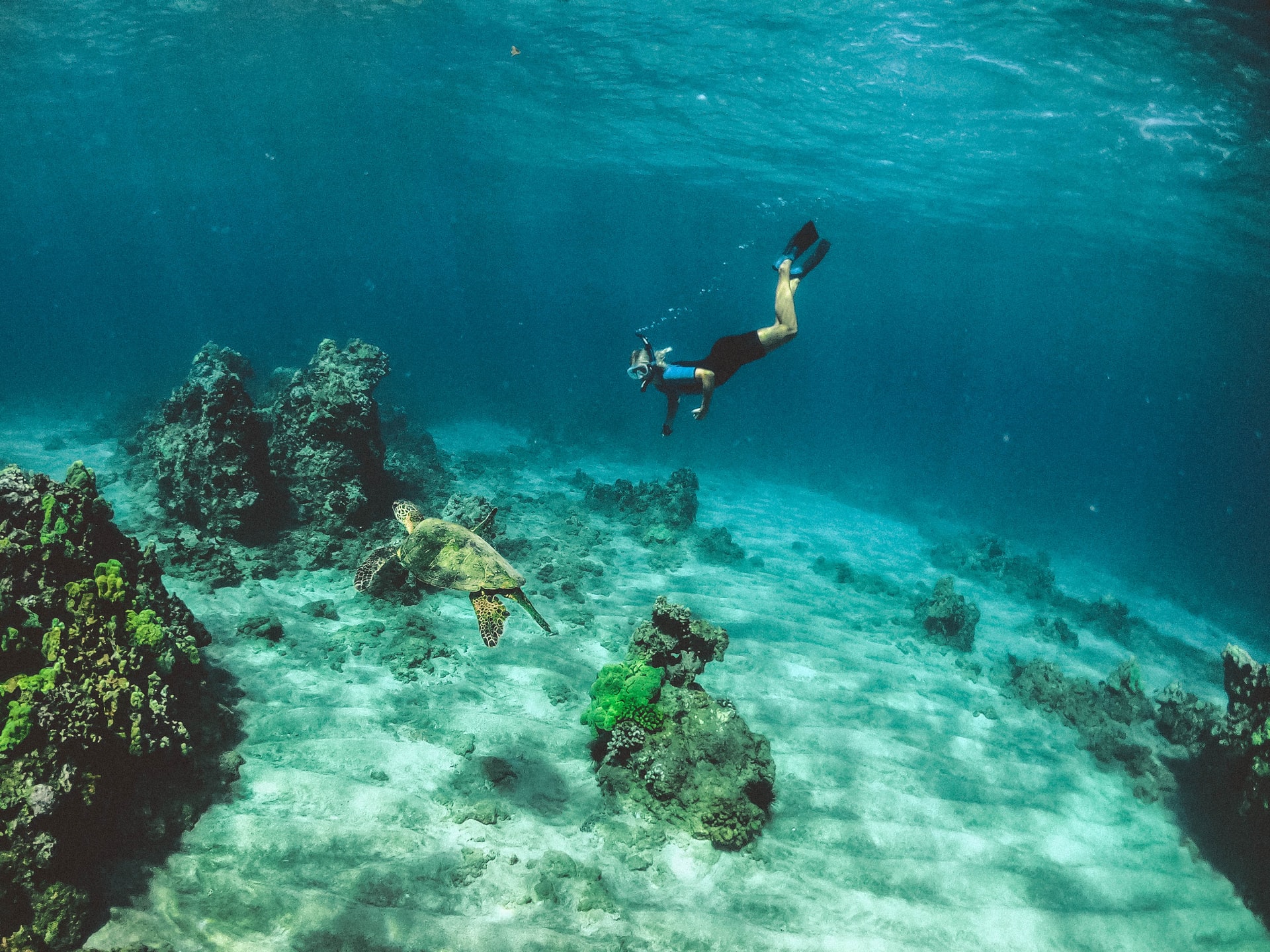
Can’t Hear After Snorkeling? 3 Possible Causes (& Solutions)
-
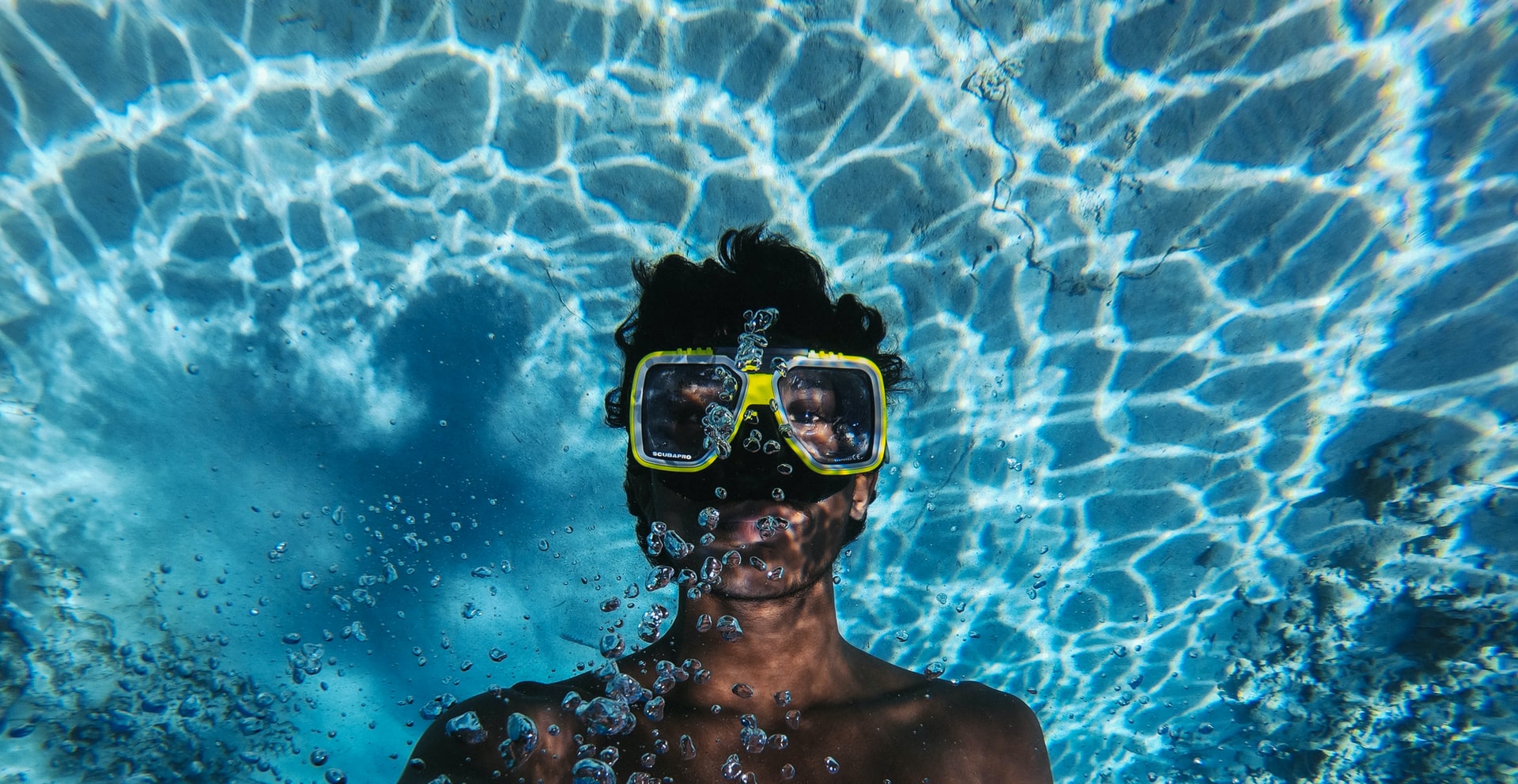
Can Snorkeling Cause a Sinus Infection? (+9 Tips to Avoid It)
-
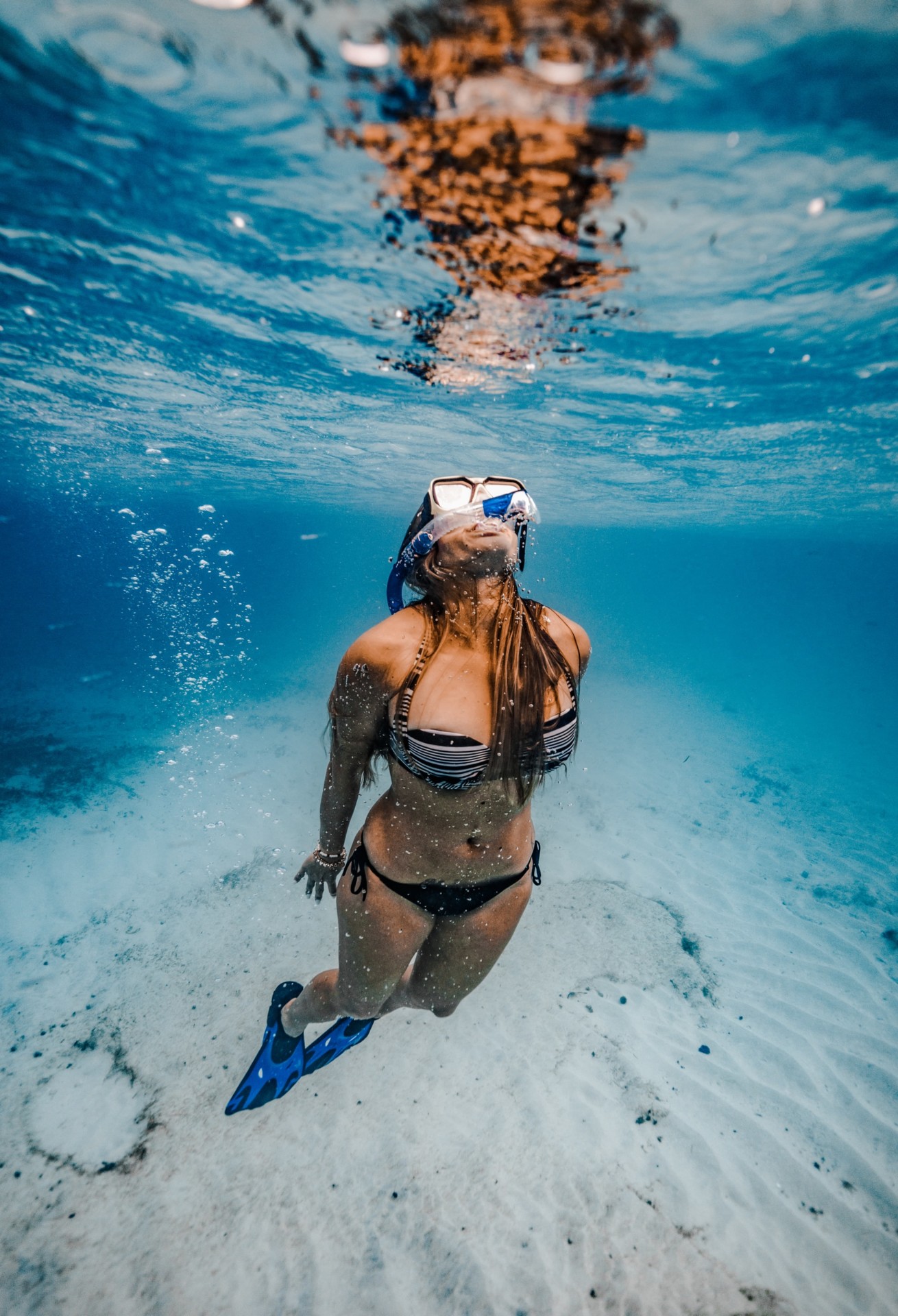
Can Snorkeling Cause a Sore Throat? 8 Common Causes (+Tips)
-
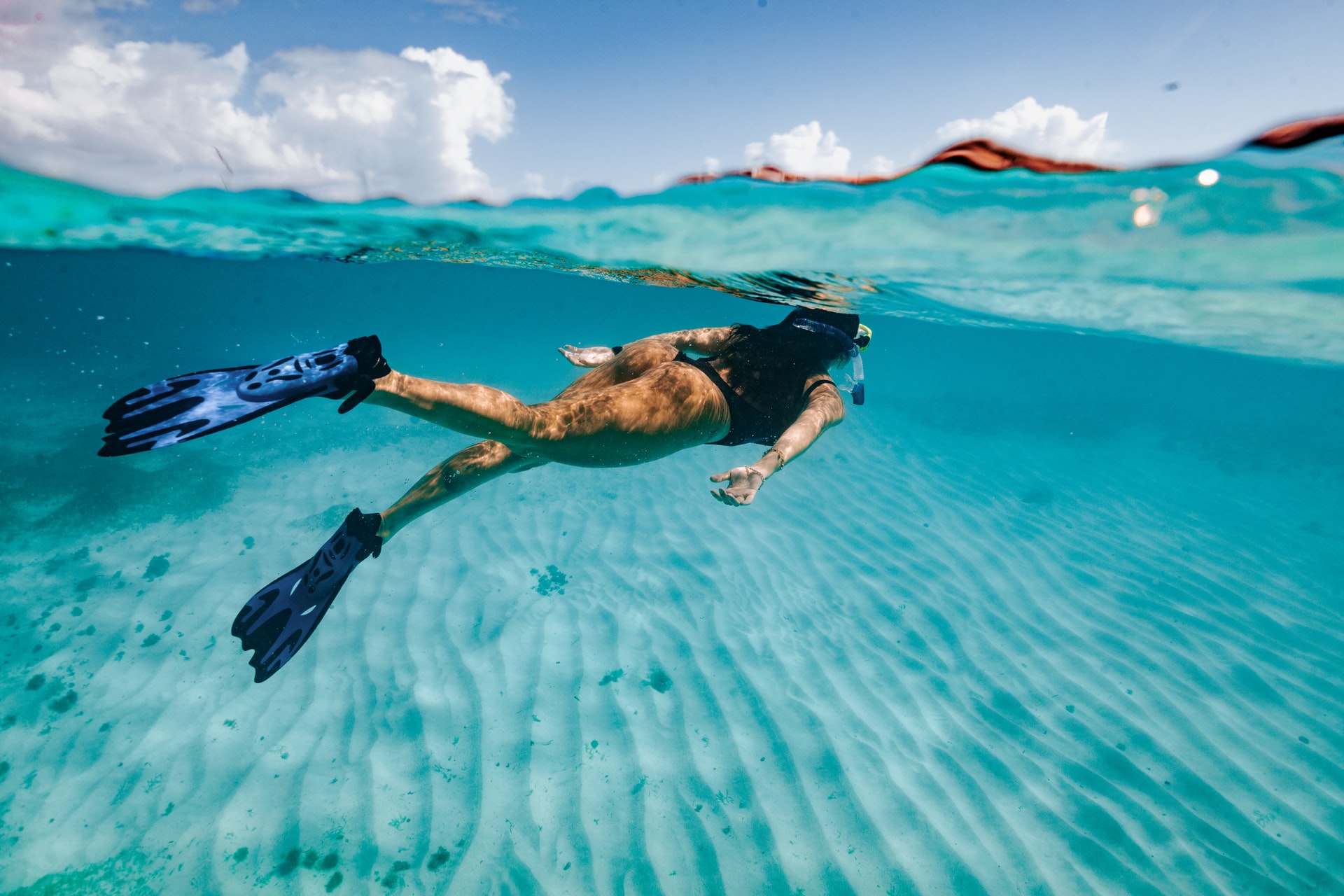
Can Snorkeling Cause Vertigo? (+8 Tips to Avoid It)
-
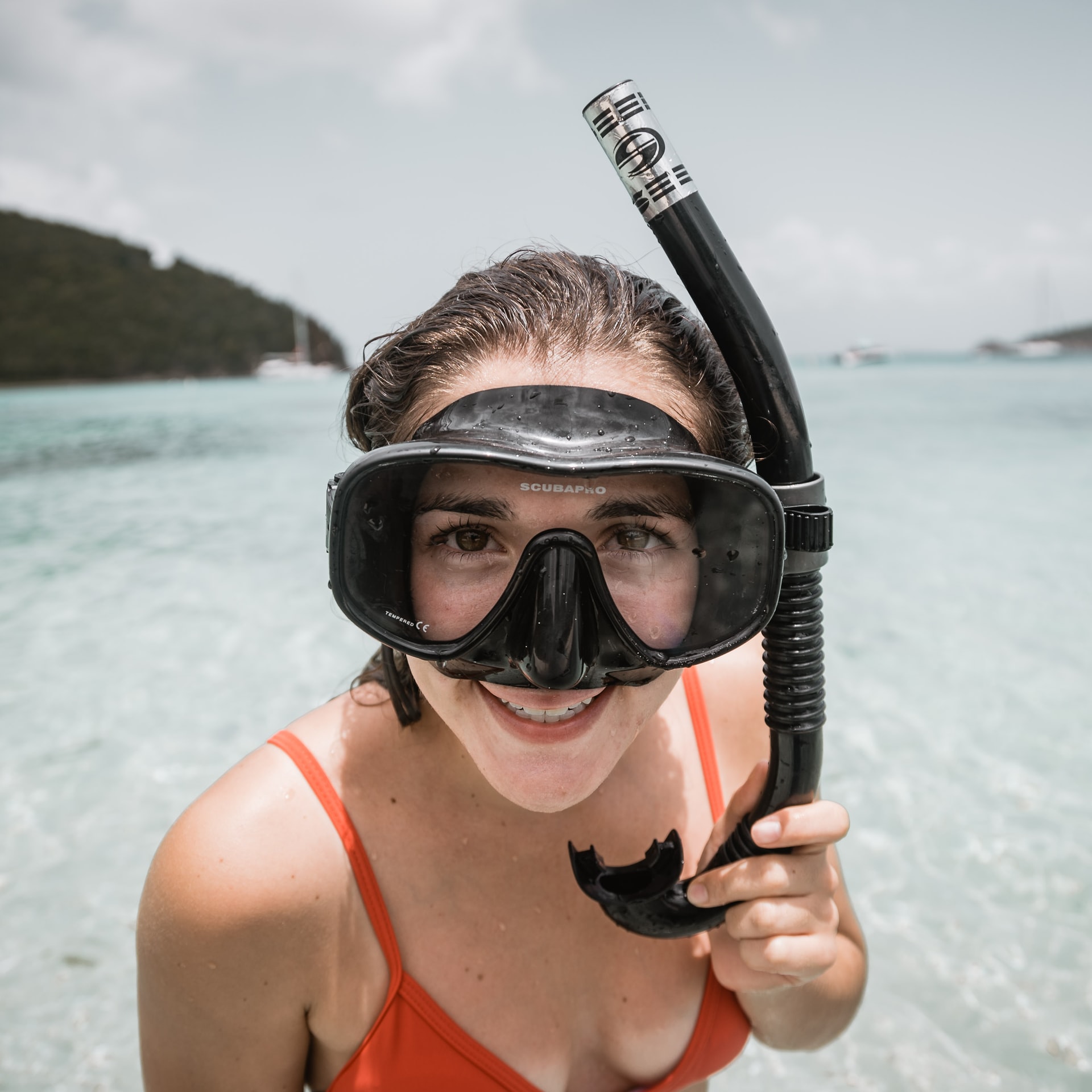
How Do Snorkel Masks Work? (+Regular Vs. Full-Face Masks)
-

Why Does Snorkeling Make Me Nauseous? (11 Causes & Remedies)
-
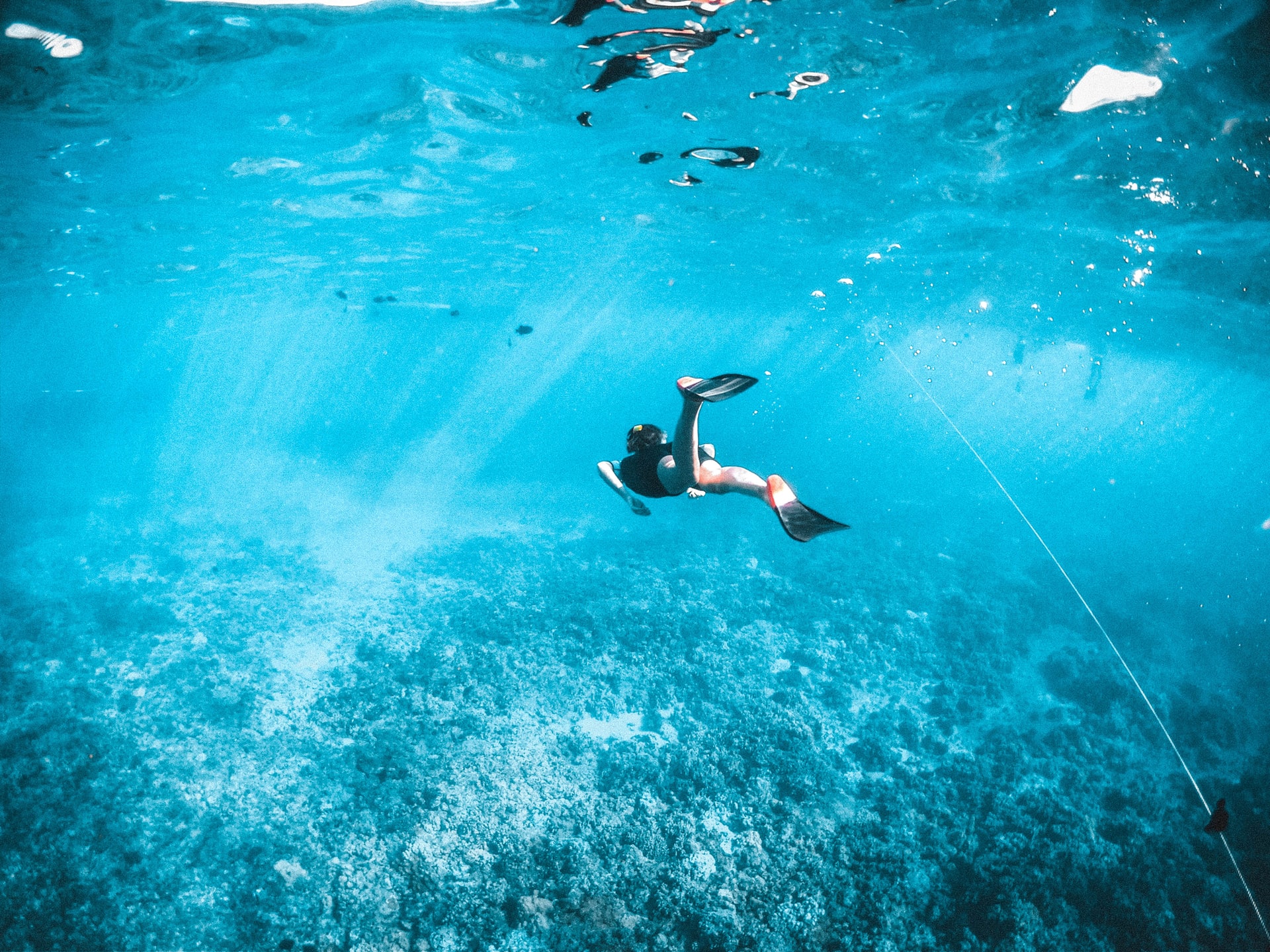
What Does Snorkeling Feel Like? FAQs Answered (for Beginners)
-
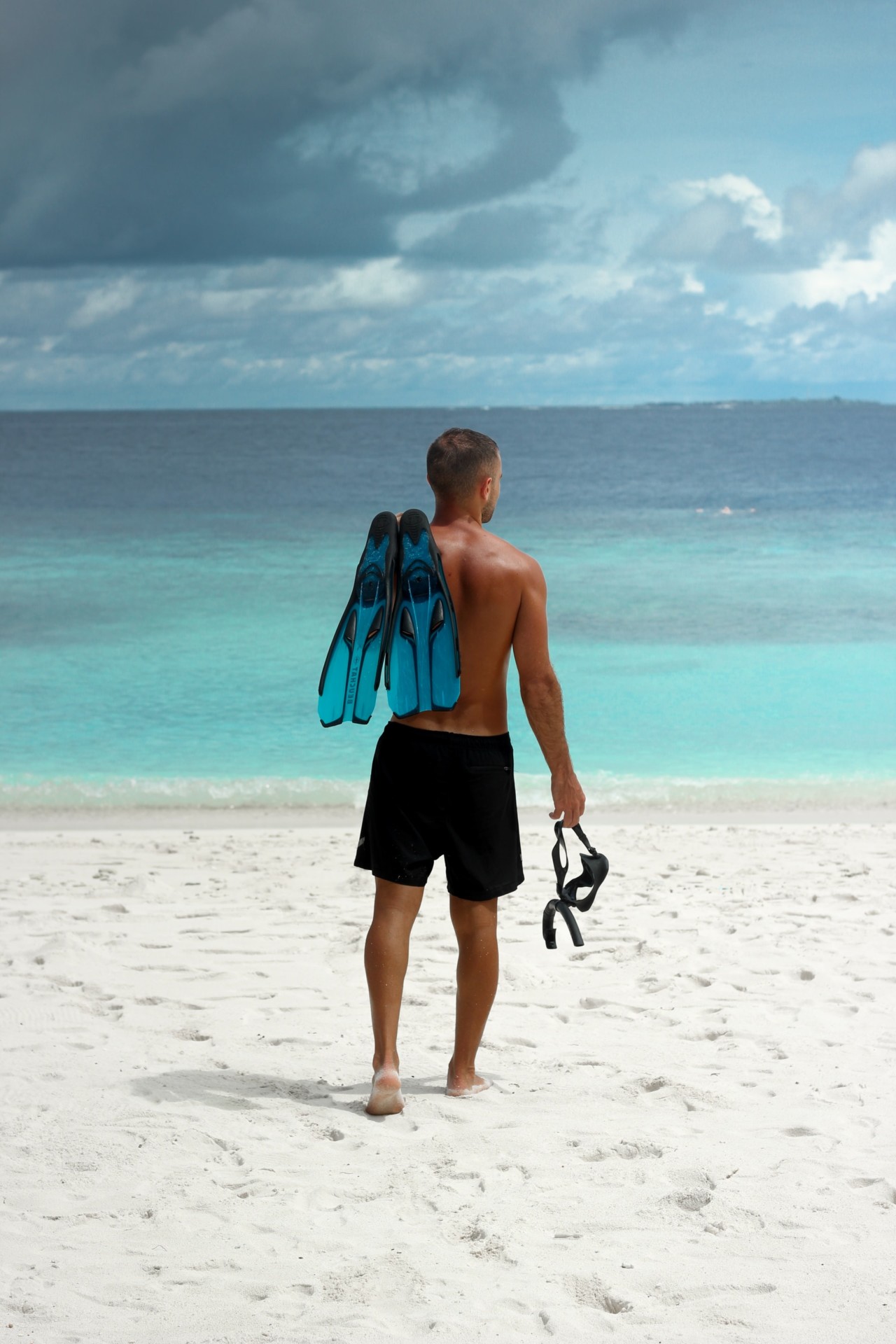
Does Rain Affect Snorkeling Visibility? 4 Ways It Does (+Helpful Tips)






